A bulb of constant volume is attached to a manometer tube open at other end as shown in figure. The manometer is filled with a liquid of density (1/3)rd that of mercury. Initially h was 228 cm.
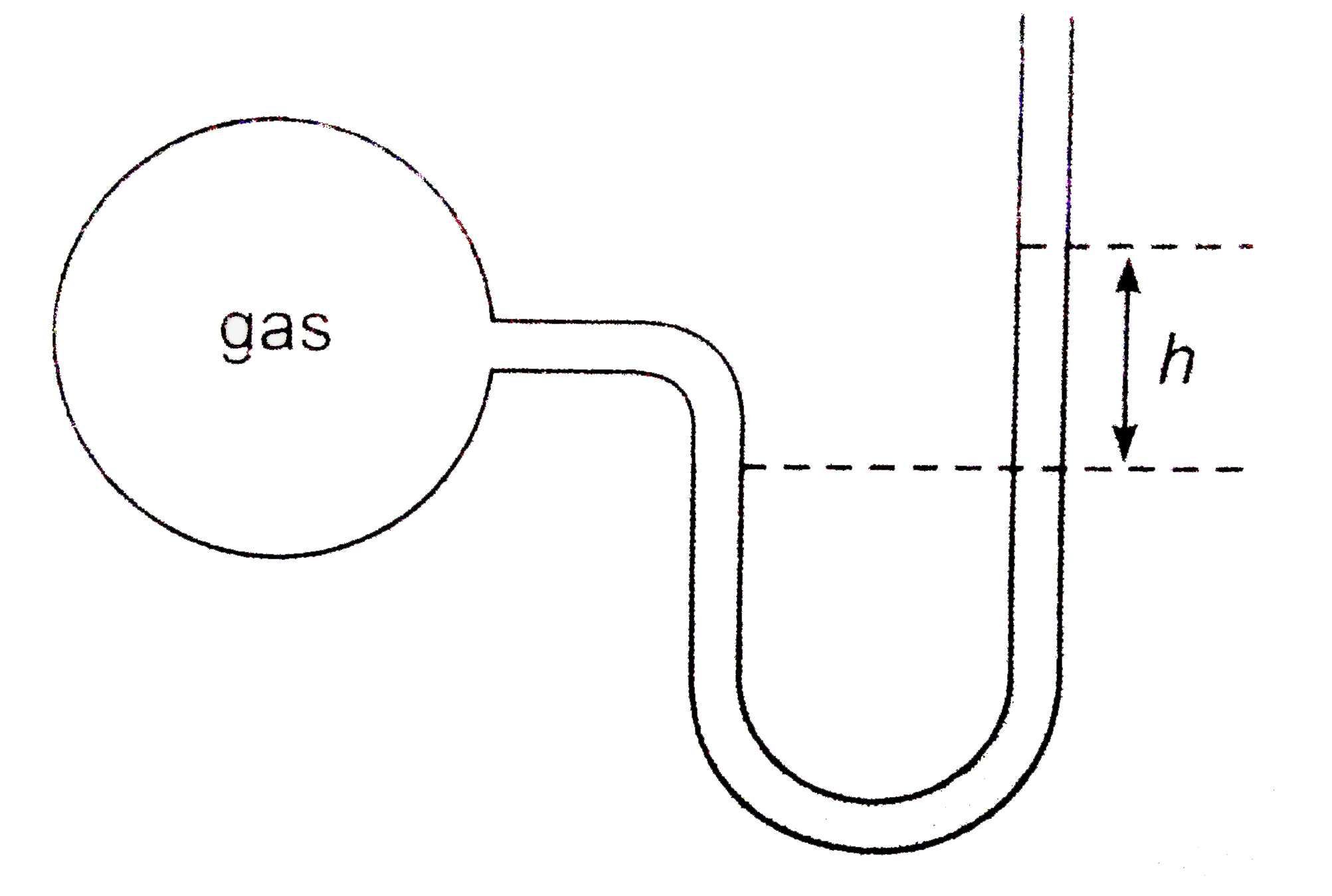
Through a small hole in the bulb gas leaked assuming pressure decreases as dPdt=−kp.If value of h is 114 cm after 14 minutes, what is the value of k (in hour−1)?
[ Use : In (4/3) =0.28 and density of Hg =13.6 g/mL.].
0.6
1.2
2.4
None of these
The correct Answer is:B
P=P0e−kt,P0=2283+76=152cmHg
At t=14min, P=1143+76=114cmHg
∴152e−kt=114
→k=1tln152114=114×0.28
=0.02×60hr−1=1.2hr−1
Topper's Solved these Questions
- BOOK - MOTIONCHAPTER - GASEOUS STATE EXERCISE - EXERCISE -1 (INTRODUCTION & STATE PARAMETERS)44videos
GASEOUS STATE
- BOOK - MOTIONCHAPTER - GASEOUS STATE EXERCISE - EXERCISE-2(LEVEL-I)48videos
GASEOUS STATE
- BOOK - MOTIONCHAPTER - GASEOUS STATE EXERCISE - SOLVED EXAMPLE15videos
GASEOUS STATE
- BOOK - MOTIONCHAPTER - ELECTROCHEMISTRYEXERCISE - EXERCISE-4,II44videos
ELECTROCHEMISTRY
- BOOK - MOTIONCHAPTER - GOCEXERCISE - Exercise - 4 Level - II14videos
GOC
Similar Questions
A bulb of constant volume is attached to a very thin manometer tube as shown in figure. Gas starts leaking through a small hole in the bulb causing change in pressure as :
dpdt=−kP2
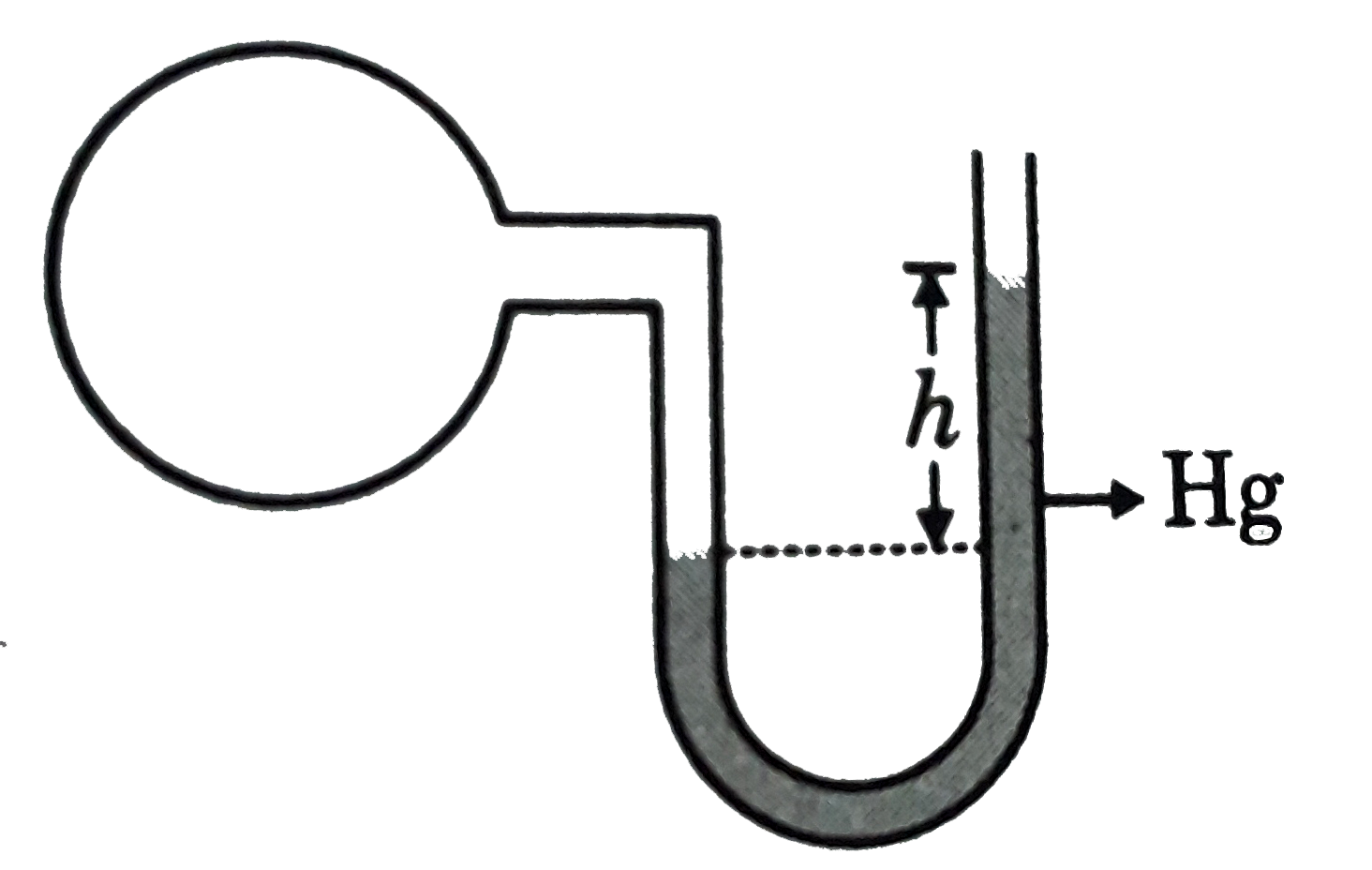
When k is constant and P is pressure at any instant
Initial height difference 'h' was 76 cm and after 10 mm 'h' was 38 cm.View SolutionA tube in vertical plane is shown in figure. It is filled with a liquid of density ρ and its end B is closed. Then the force exerted by the fluid on the tube at end B will be : [Neglect atmospheric pressure and assume the radius of the tube to be negligible in comparison to l]
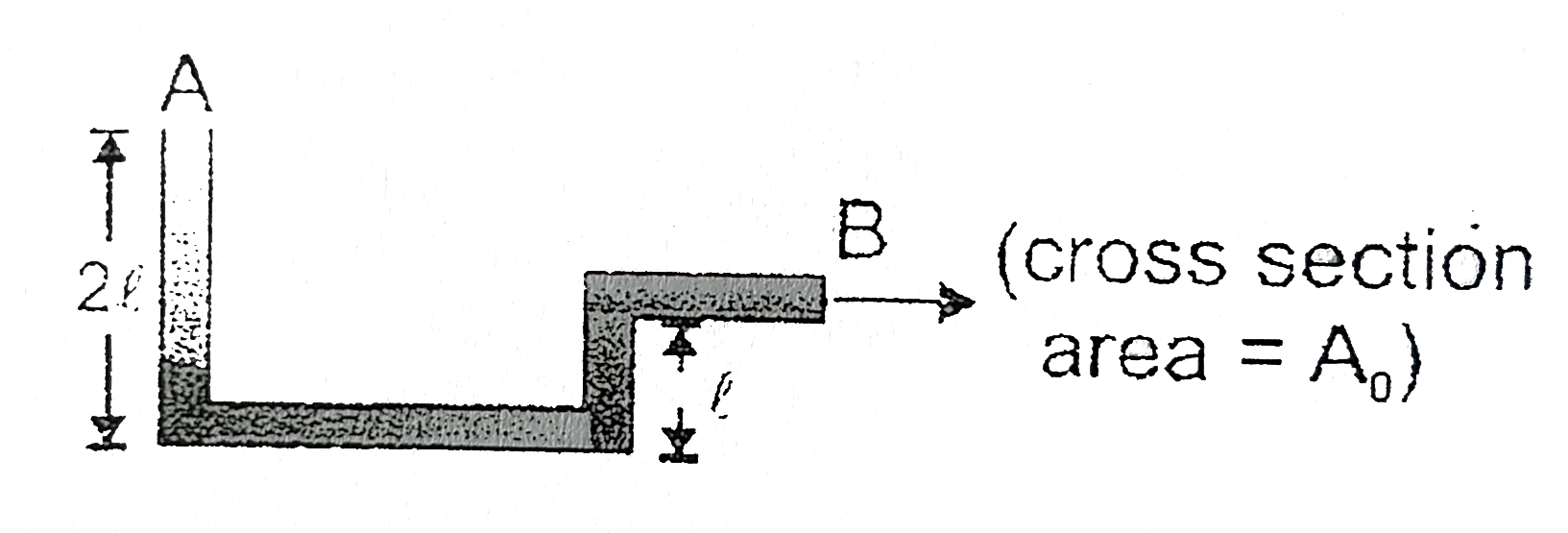 View Solution
View Solution
Knowledge Check
- Question 1 - Select One
What is U-tube manometer used for?
ATo measure force applied by liquids direction?BTo measure density of liquidsCTo measure liquid pressureDTo measure liquid volume - Question 2 - Select One
A manometer reads the pressure of a gas in an enclosure as shown in the figure. The absolute and gauge pressure of the gas in cm of mercury is (take atmospheric pressure =76 cm of mercury)
A76,20B20,76C96,20D20,96 - Question 3 - Select One
A monometer contains a liquid of density 5.44g/cm3 is attached to a flask containing gas 'A' as follows
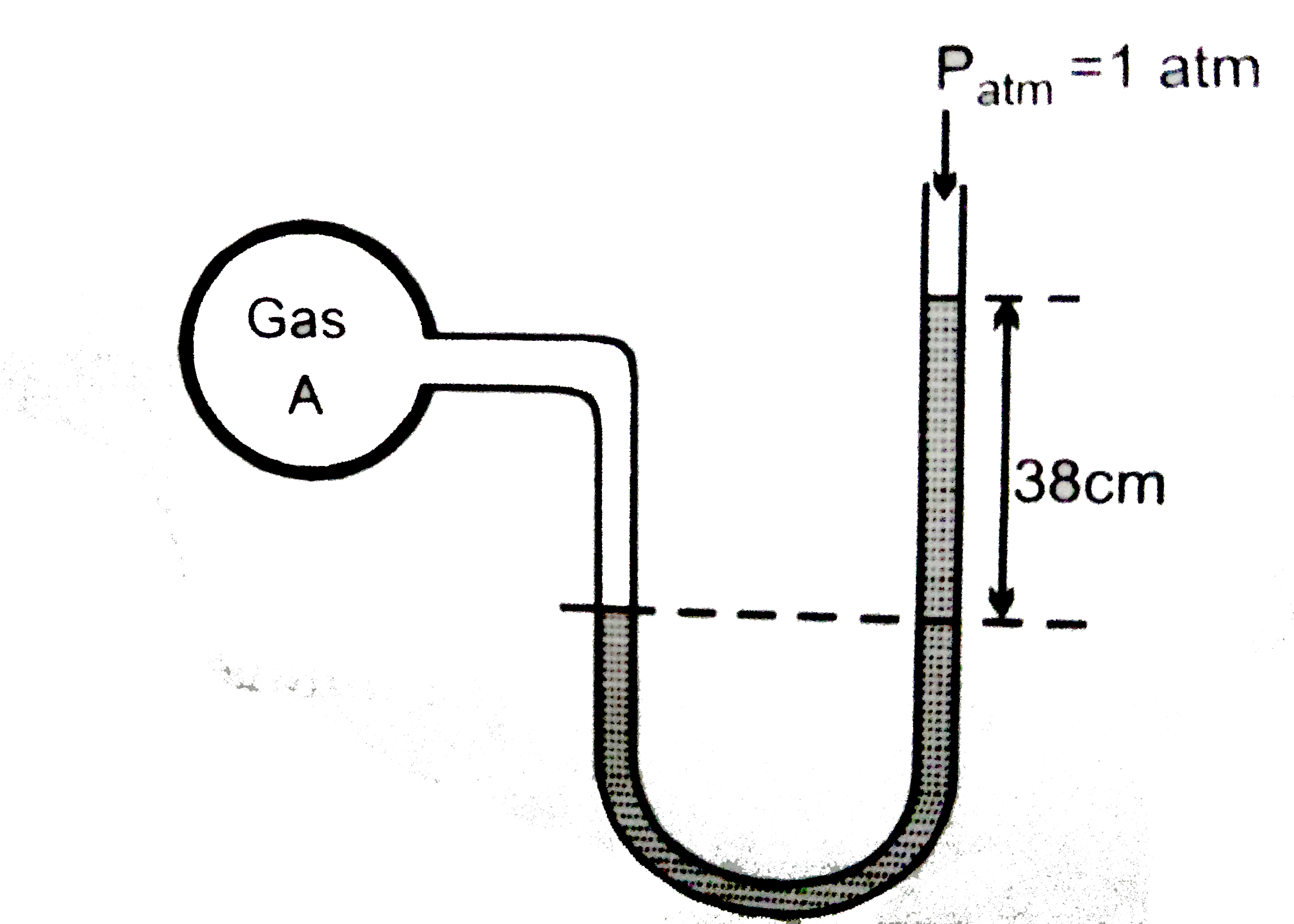
The initial pressure of gas A in th flask is:A1.5 atmB1 atmC1.3 atmD1.2 atm
A horizontally oriented tube AB of length l rotates with a constant angular velocity ω about a stationary vertical axis OO′ passing through the end A (figure). The tube is filled with an ideal fluid. The end A of the tube is open, the closed end B has a very small orifice. Find the velocity of the fluid relative to the tube as a function of the column "height" h.
 View Solution
View SolutionWhen the bulb of a constant volume air thermometer is immersed in ice, the mercury level in the open tube is 15 cm higher than the fixed index. When the bulb is immersed in boiling water the difference in the two levels increases to 48.3 cm. When the bulb is immersed in a hot liquid, the difference in levels decreases to 21 cm. What is the temperature of the hot liquid ?
View SolutionA manometer tube contains mercury of density 13.6×103 kg m−3. What difference in the levels of mercury in the two arms is indicated by a gauge pressure of 1.03×105Pa?
View SolutionWhen one limb of a manometer is connected to a container filled with a gas, the level of the mercury in the other limb rises by 'h' cm. Then the pressure of the gas in the container is 76+h cm of Hg.
View SolutionA liquid of density ρ has to spray with help of aspirator pump at height H from liquid level as shown in figure. If gauge pressure inside bulb is P and density of air is σ then velocity of air in tube AB is
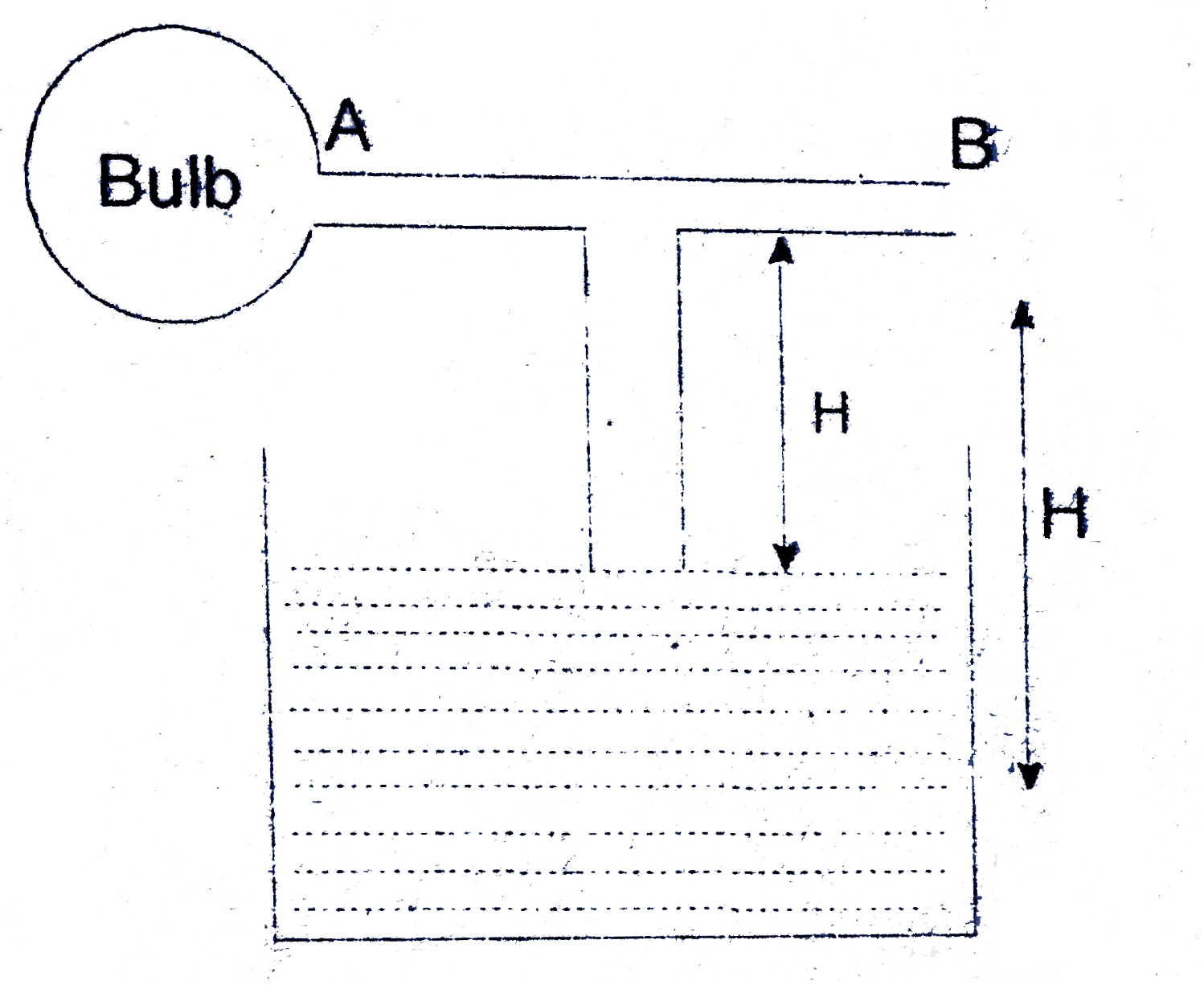 View Solution
View Solution

